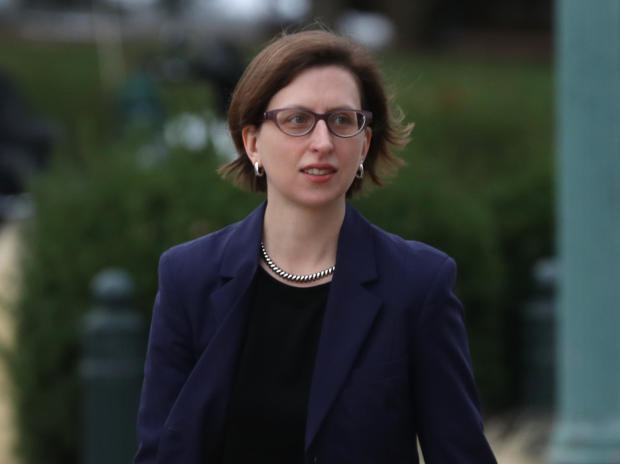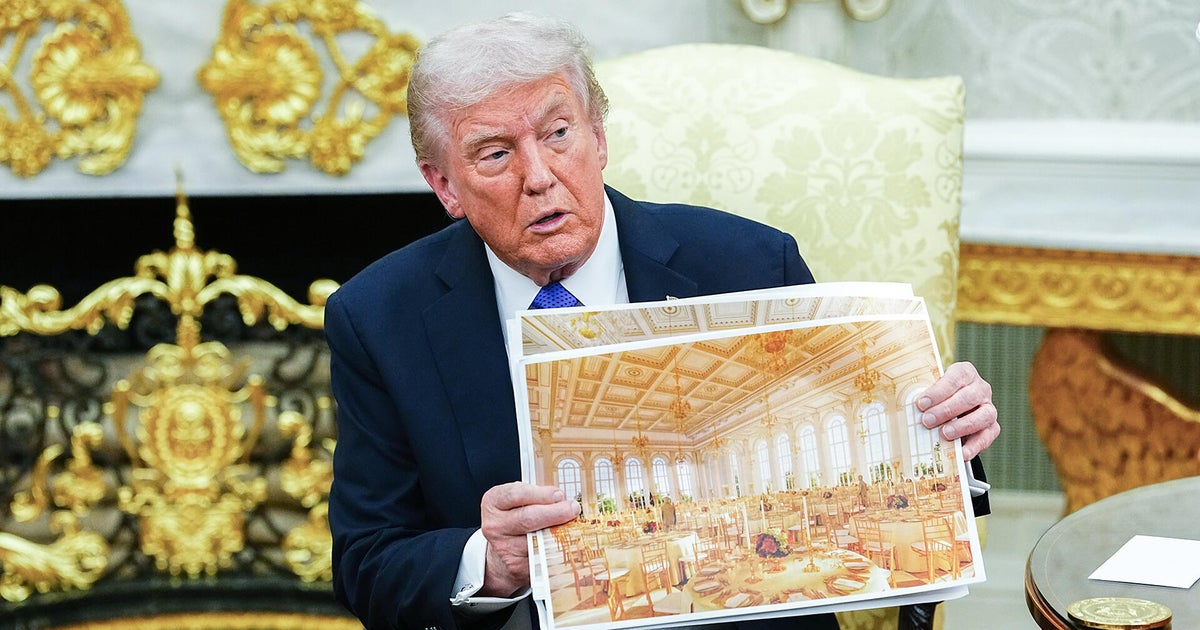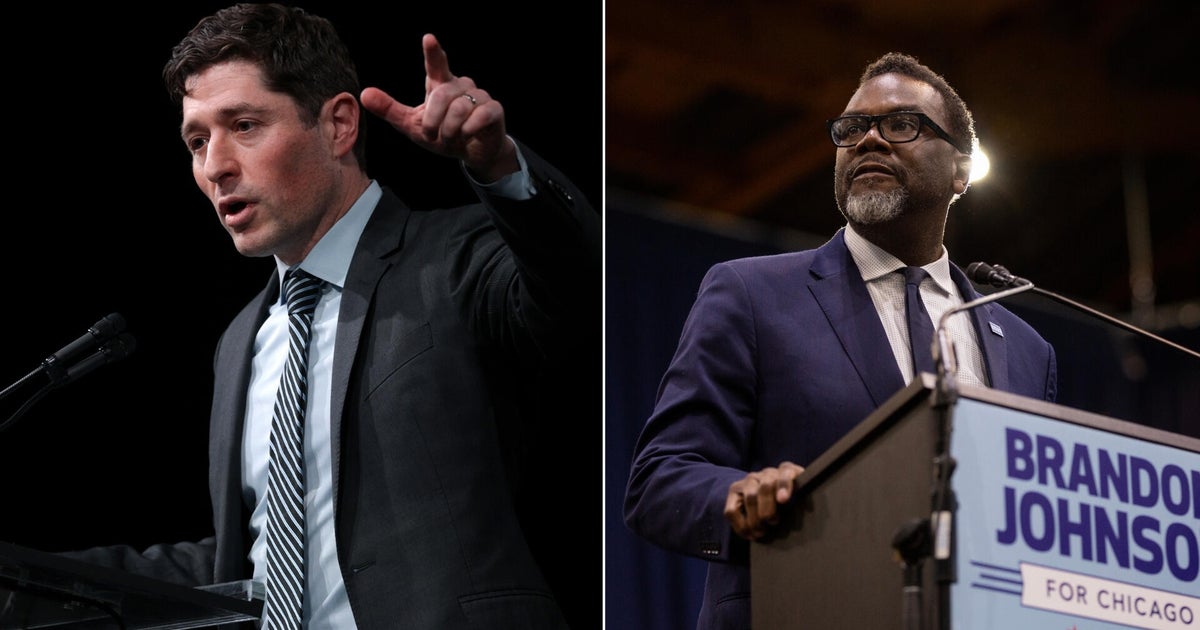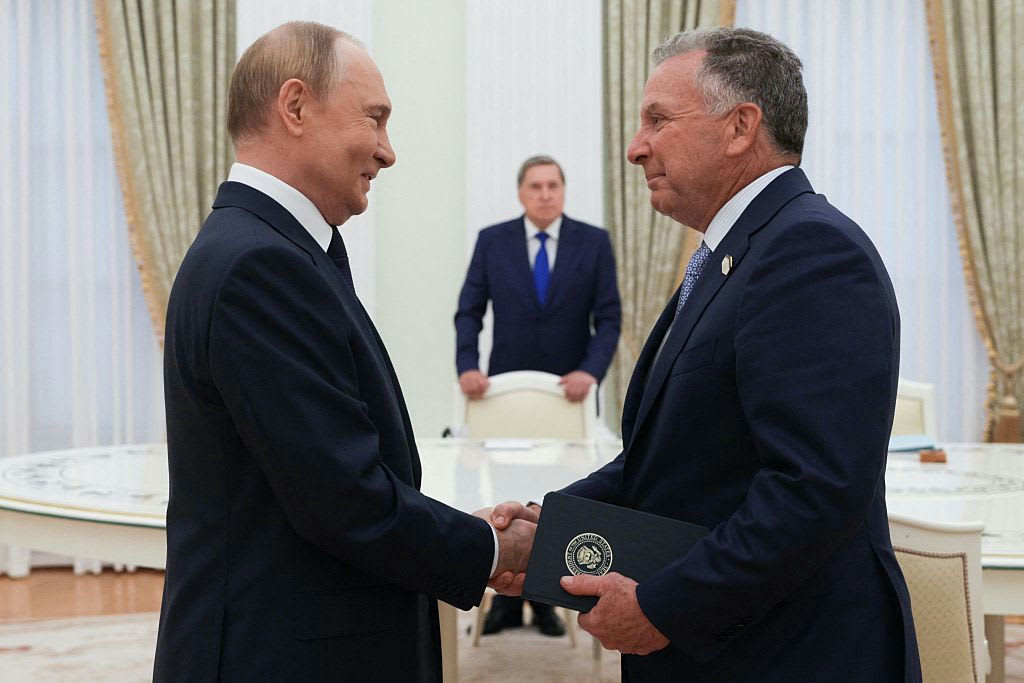Pentagon left in the dark over delay in Ukraine aid, defense official testified
Washington — A top Pentagon official told lawmakers that Defense Department officials were in the dark about a delay in military aid to Ukraine, according to a transcript of closed-door testimony before the committees leading the impeachment probe released Monday.
Laura Cooper, the deputy assistant secretary of defense for Russia, Ukraine and Eurasia, is responsible for overseeing U.S. military assistance to Ukraine. The delay of the release of nearly $400 million in aid is central to Democrats' case against President Trump.
Cooper said the funds "were held without explanation," and officials "began to raise concerns about how this could be done in a legal fashion." The delay came as Rudy Giuliani, the president's personal lawyer, was spearheading an effort to persuade the Ukrainian government to open investigations against Mr. Trump's rivals.
Cooper's appearance on October 23 was delayed for several hours after House Republicans stormed the secure hearing room and refused to leave, an act of protest against the Democrats' handling of proceedings.
Read the full text of Cooper's testimony here
Questions over military aid
Cooper explained the extensive process that goes into distributing aid to Ukraine from a Defense Department fund, noting that it differs from a State Department program. The program administered by the Pentagon — known as the Ukraine Security Assistance Initiative, or USAI — provides military equipment ranging from sniper rifles to night vision goggles to the Ukrainian army to fend off Russian aggression, Cooper said.
"Security assistance is vital to helping the Ukrainians be able to defend themselves," Cooper said. "It is also within the U.S. national interest to provide security assistance to Ukraine."
The aid package is conditioned on the Ukrainian government fulfilling certain criteria on reforming its military, conditions it has met since the program's inception three years ago, Cooper said.
On June 18, Cooper coordinated a press release from the Pentagon announcing the department planned to provide $250 million for training and equipment for the Ukrainian army. After that announcement, Cooper said, she and her team got a series of questions from the secretary of defense's chief of staff "asking for follow-up on a meeting with the President." The questions were about U.S. industry's role in providing the military equipment, and how much other countries were contributing to Ukraine's defense.
"When my office responded to these questions, we speculated that perhaps someone in the White House had seen our press release and then seen an article that came out after the press release," Cooper said. She said she and her team responded to the questions within a week.
First signs of a delay
Cooper said the first indication she had that the release of the aid had been delayed came in the middle of July after a meeting on Ukraine policy chaired by a National Security Council director.
Cooper sent her deputy, and said a readout of the July 18 meeting indicated "there was discussion in that session about ... OMB saying that they were holding the Congressional Notification related to FMF," referring to Foreign Military Financing, the aid program administered by the State Department. OMB refers to the White House Office of Management and Budget, which signs off on notifications to Congress about aid from the State Department program.
She said her staff tried to clarify whether that delay applied to the Pentagon program as well, and received no guidance.
"So at that point, we were concerned, because this notion that there was guidance that was broadly applicable to Ukraine security assistance was a source of concern, but the only specific was related to that Congressional Notification for FMF," Cooper said.
"A larger issue"
In a subsequent meeting on July 23, Cooper said she pushed for the State Department aid to be released and "still wasn't sure if our funds were actually at risk." A representative from OMB said acting White House chief of staff Mick Mulvaney "has conveyed that the President has concerns about Ukraine and Ukraine security assistance."
"So I walked away from the meeting on the 23rd thinking okay, we know that this is, you know, a larger issue," Cooper testified.
On July 26, Cooper got the first notice that Defense Department aid — under the USAI program — was also being put on hold, at a meeting of deputy secretaries that she attended.
"It was the first time it was stated very clearly ... that yes, it is FMF and USAI are both affected by this hold and that it relates to the President's concerns about corruption," she told lawmakers, saying an OMB official had relayed the delay.
Cooper said the deputies' reactions "reflected a sense that these was not an understanding of how this could legally play out. And at that meeting the deputies agreed to look into the legalities and to look at what was possible."
Olivia Gazis contributed reporting.




